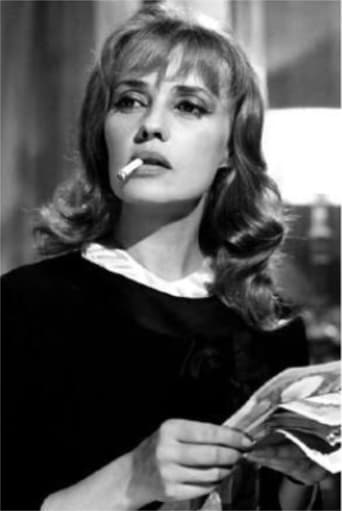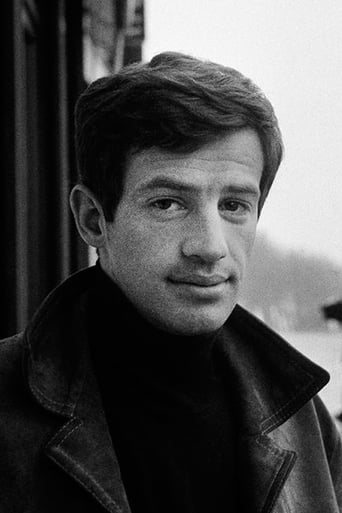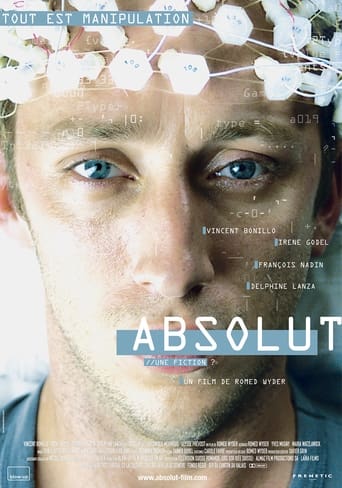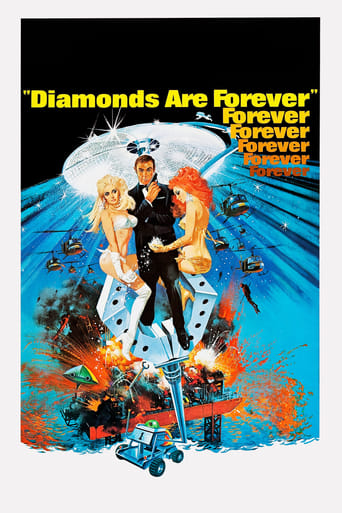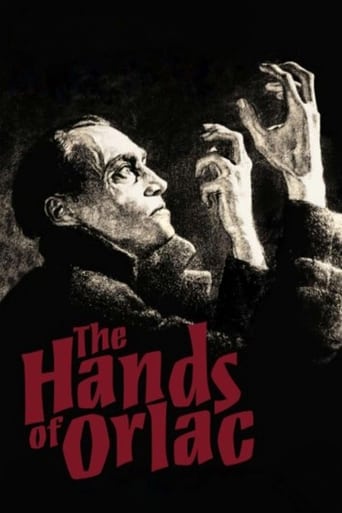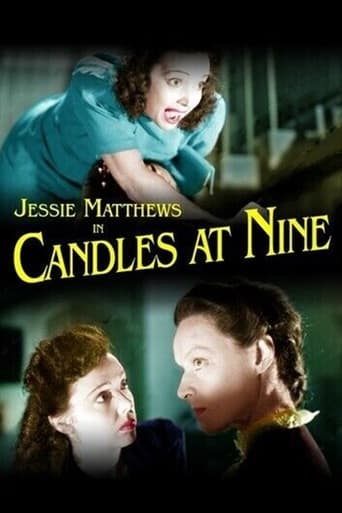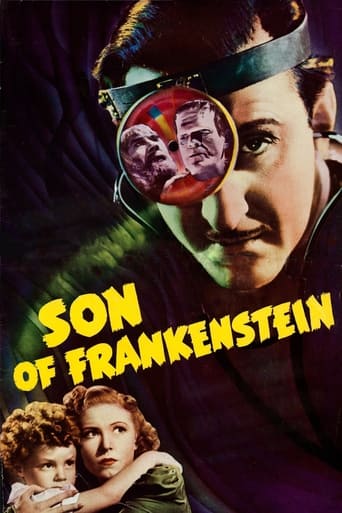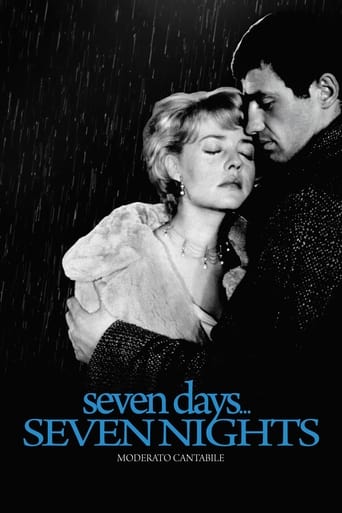
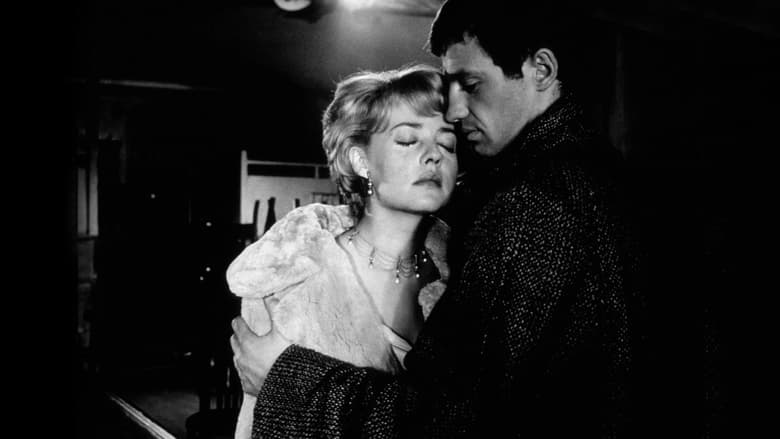
Seven Days… Seven Nights (1960)
Anne Desbarèdes is a young woman who is married to a wealthy businessman and lives a monotonous existence in the small commune town of Blaye. After indirectly witnessing a murder in a café, she returns to the scene of the crime the next day and meets Chauvin, who informs her in more detail about the events that took place. Mentally unbalanced, Anne begins to believe that Chauvin intends to kill her.
Watch Trailer
Cast
Similar titles

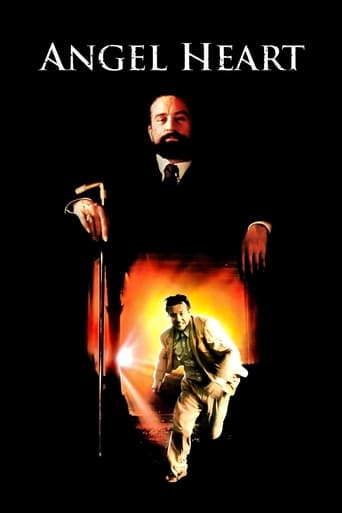
Reviews
People are voting emotionally.
Overrated and overhyped
It’s an especially fun movie from a director and cast who are clearly having a good time allowing themselves to let loose.
If the ambition is to provide two hours of instantly forgettable, popcorn-munching escapism, it succeeds.
Moderato cantabile (1960) was shown in the U.S. with the title Seven Days . . .Seven Nights. Peter Brook directed this French film, and Marguerite Duras adapted her novel for the screen. (Note that IMDb has the film listed with its U.S. title, although the VHS uses the original French title, and lists the date of release as 1959.) The plot of the movie is somewhat basic. A beautiful woman leads a banal life as the trophy wife of a town's leading industrialist. Her only pleasure is her interactions with her son, Pierre, who is about seven years old. (The title Moderato Cantabile comes from the son's piano teacher, who is trying to get him to understand the concept.)Within the first few minutes of the film, a horrible scene occurs in a bar right next to the piano teacher's home. For the rest of the film, the plot keeps circling back to discussion that event. We assume something bad is going to happen, although we don't know what.Jeanne Moreau plays the wife, Anne, and Jean Paul Belmondo plays Chauvin, someone who works in her husband's factory. They meet and discuss the event, and then we watch their relationship unfold.This would be just another black and white French film from the 1950's, except that it stars Moreau and Belmondo. Belmondo is a formidable masculine presence, with his high cheekbones and his broken nose. Moreau is unique--certainly one of the great actors of the 20th Century.Director Brooks knows that when he is working with Moreau he is working with an extraordinary actor, and he lets us know that he knows. In one scene, there's a single image of Moreau's face that fills the screen. That single image is on the screen for almost 30 seconds! Those large eyes and downturned mouth are a part of French and worldwide cinematic culture.I want to make note of Didier Haudepin, who plays Moreau's son, Pierre. He's an extraordinary child actor, because he looked as if he weren't acting. He had a major role in the movie, but it appeared that he was just a normal kid who didn't like piano lessons. It's hard for an actor-- especially a child--to look as if he weren't acting. Haudepin managed it, and it's no surprise that he went on to have an outstanding career in film.We saw this movie on VHS cassette, but it's available on DVD. It's an excellent film, and definitely worth seeking out and viewing.P.S. We became interested in Moderato Cantabile because years ago we acquired an original movie poster of the film. We eventually donated the poster to the excellent Little Theatre in Rochester, NY. If you attend The Little, you'll see it prominently displayed. Our thought to ourselves was--you've seen the poster, now watch the movie!
Almost surreal in its emptiness, boredom, and the incomprehensible melodrama of the main character. I think her motivation is explained by her being in a constant state of boredom and despair, who is briefly given a futile energy when she eroticises the death of a stranger at the hands of a lover and finds a man willing to, briefly, play along with her fascination and give her a slight thrill in a flirtatious acquaintance based on discussing the case. But nothing really happens. At all. Then he says he's leaving, she screams in despair, and then it ends. Was she disappointed she didn't arouse enough passion in him for him to murder her? It's basically a bored wife in a passionless marriage having an extremely brief and relatively mild breakdown that leads to nothing. I had a hard time empathising with her, which unfortunately might be the key to really getting the most out of this film. The mother/child relationship is touchingly portrayed though.There's also an atmosphere of unsettling hostility in the village that I just don't understand the purpose of, but I've noticed that in french films before so maybe it's just how life is over there in a provincial town. It's beautifully made and there's some lovely cinema-photography.
The story is extremely simple. When a woman is murdered in a bar, the bored wife of a local employer becomes obsessed with her fate and discusses it with a witness, an unemployed man who used to work for her husband. Without much secrecy the two progress into an intense but unconsummated affair, never even kissing. Yet, like all affairs. it has to end. What counts is the way the story is told. Visually it is striking, in atmospheric black and white widescreen set wholly in bleak winter light in an unromantic little Atlantic port. Workmen in berets and women in headscarves trudge about, while the rich travel in nothing more exciting than a Peugeot. Aurally, the score is mostly the Diabelli sonatina labelled "moderato cantabile" that the woman's child is learning, its light charm a contrast to the darkness of the story. In the bar the jukebox blares out jazzy Latin numbers while sirens from ships and factories interpose a melancholic note.Of the two principals, Jeanne Moreau is the perfect incarnation of a sexy bourgeoise full of unfulfilled longings: the film is worth seeing more than once for her alone. As her nearly-lover, Jean-Paul Belmondo performs manfully and is always interesting to watch, but looking gloomy without animation and conversing literately without any cheerful obscenities are not what we want from him (he was not so happily cast in "La Ciociara" the same year either). Talking is what the two lovers do, this being a French film, but like "L'Année dernière á Marienbad" the dialogue is from a novel not from life. By inserting this layer of artifice over what might have been said in reality, the couple are distanced from boss's wife and out of work man and their affair becomes not real but a product of imagination. While highly dramatic, the agony of the wife is however close to the truth of a woman's heart into which men, whether unfeeling husband or cautious lover, can never quite see. PS For people who enjoy bourgeois rituals being disrupted, like the wedding reception in "Melancolia" or the post-opera gathering in "El ángel exterminador", the dinner party at the climax of this film is a small joy. Shortly beforehand, the wife nips out to the local bar that is full of working men and downs several wines. Once at table, after just managing the fish, she loudly refuses the meat and rushes away to be sick. Not the perfect hostess in 1950s provincial France.PPS Not a few similarities with the 1956 film "Le Sang à la tête" based on a Georges Simenon book "Le Fils Cardinaud". In both, the major employer of a West Coast port loses his neglected wife temporarily but publicly to a young working man.
"Moderato Cantibile" was only the second film by the great British director Peter Brook and it proved, like Welles before him, that he was equally adept in either medium. It was made in France in 1960 and has now largely been forgotten, though at the time the magazine Films and Filming selected it as the best film of the year from any source and it's a masterpiece. It's also one of the most beautiful black and white films to be made in the Cinemascope format. (Armand Thirard was the DOP).It's about a respectable,if unhappily married, woman in a grim little coastal town in France who drifts into an affair of sorts with a man from farther down the social ladder. They are played, magnificently, by Jeanne Moreau and Jean-Paul Belmondo. The oblique, brilliant screenplay is by Marguerite Duras and Gerard Jarlot from a novel by Duras and anyone remotely interested in cinema as an art-form should seek it out.
